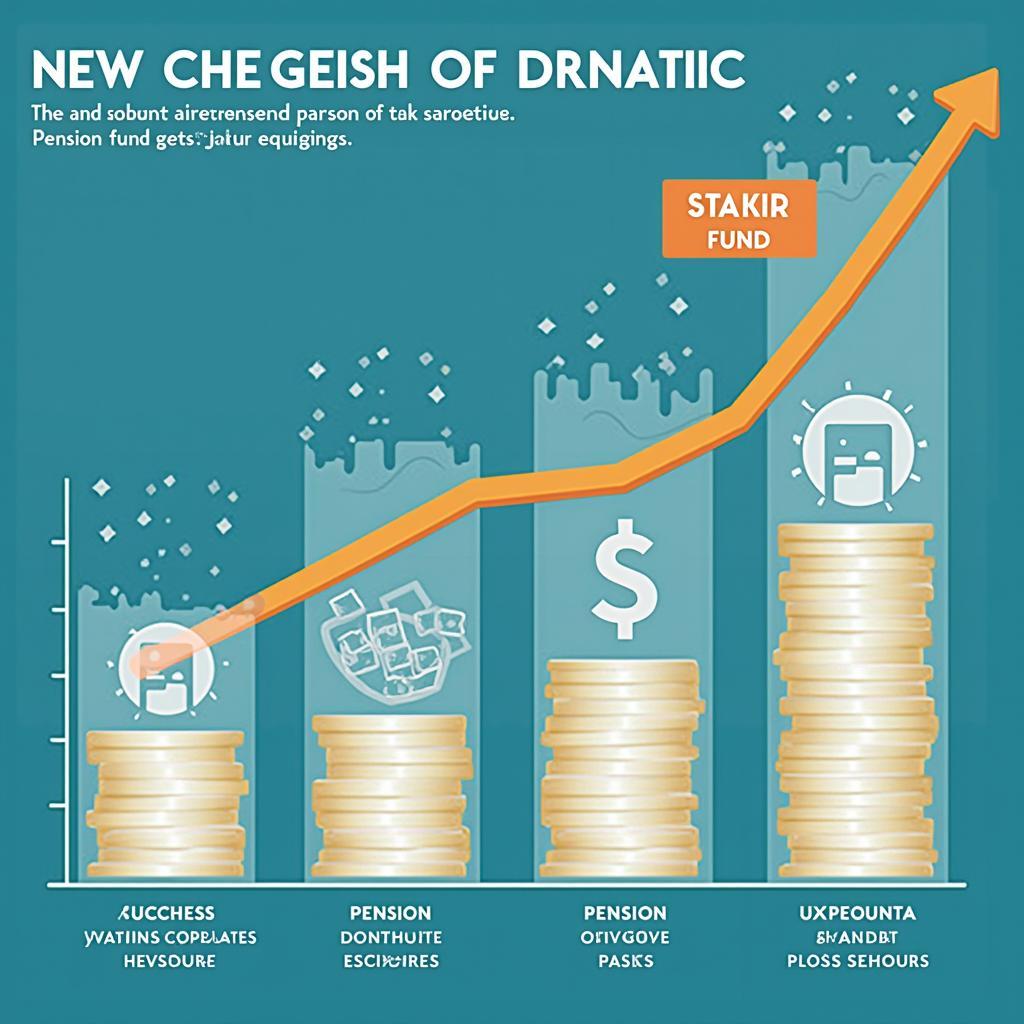Stock market volatility and its effects on pension funds have become increasingly relevant topics in IELTS Writing Task 2 examinations. Recent analysis of past IELTS tests shows this theme appearing regularly, particularly in essays discussing economic stability and financial security. Understanding how stock market fluctuations affect the economy is crucial for achieving a high band score.

Analysis of Task Question
Some people believe that pension funds should not be invested in the stock market due to the risk of market crashes. To what extent do you agree or disagree with this statement?
This question requires candidates to evaluate the relationship between pension fund investments and stock market risks. The topic connects closely to how investment funds contribute to economic stability.
Sample Essay 1 (Band 8-9)
The question of whether pension funds should be exposed to stock market volatility has sparked considerable debate. While I partially agree that extreme market volatility poses risks to retirement savings, I believe that completely avoiding stock market investments would be detrimental to long-term pension fund growth.
Firstly, stock markets, despite their periodic downturns, historically provide superior returns compared to other investment vehicles. Over extended periods, major market indices have demonstrated average annual returns of 7-10%, significantly outpacing inflation and traditional fixed-income investments. This growth potential is crucial for pension funds to maintain their purchasing power and meet future obligations to retirees.
However, the impact of market speculation on stocks cannot be ignored. Market crashes can temporarily devastate portfolio values, potentially causing significant stress for those nearing retirement. The 2008 financial crisis, for instance, wiped out trillions in pension wealth, highlighting the importance of risk management strategies.
The solution lies in implementing balanced investment approaches rather than complete market avoidance. Pension funds should adopt diversification strategies, combining stocks with bonds, real estate, and other assets. Additionally, age-based portfolio allocation can help protect older participants while allowing younger ones to benefit from long-term market growth.
In conclusion, while stock market volatility presents real risks, careful investment strategies can harness market growth while protecting against severe downturns. The key is finding the right balance rather than avoiding market participation altogether.
Sample Essay 2 (Band 6-7)
Many people worry about putting pension money in the stock market because it can be risky. While I understand these concerns, I think stock market investments are important for pension funds.
The main advantage of investing in stocks is that they can make more money over time. When we look at how stock market performance affects retirement plans, we can see that stocks usually grow more than bank savings accounts. This helps pension funds grow bigger and pay more money to retired people.
However, there are some problems with stock market investments. Sometimes the market goes down a lot, and this can make people lose money. This is especially bad for old people who need their pension money soon. For example, many people lost pension money in 2008 when the stock market crashed.
I think the best way is to use both stocks and other investments. Pension funds should put some money in safe places like government bonds and some in stocks. They should also change how much they put in stocks based on how old people are.
To conclude, while the stock market can be risky, it’s still important for pension funds to invest in it, but they should do it carefully and safely.
Key Vocabulary Analysis
- Volatility (n) /ˌvɒləˈtɪləti/ – tendency to change rapidly and unpredictably
- Portfolio (n) /pɔːtˈfəʊliəʊ/ – collection of investments
- Diversification (n) /daɪˌvɜːsɪfɪˈkeɪʃn/ – spreading investments across different assets
- Fixed-income (adj) /fɪkst ˈɪnkʌm/ – providing a regular, unchanging return
- Outpace (v) /aʊtˈpeɪs/ – to go faster or do better than something else
- Purchasing power (n) /ˈpɜːtʃəsɪŋ ˈpaʊə/ – value of money in terms of what it can buy
- Risk management (n) /rɪsk ˈmænɪdʒmənt/ – identification and control of threats
- Market indices (n) /ˈmɑːkɪt ˈɪndɪsiːz/ – statistical measures of market performance
Looking to practice? Write your own essay response in the comments section below, and feel free to discuss the sample essays provided. Future similar topics might include the impact of cryptocurrency on pension funds or the role of government regulation in protecting retirement savings.